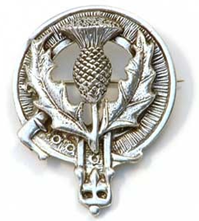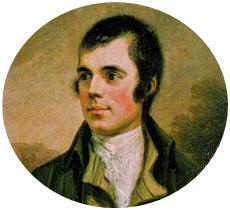Scots Wha Hae (a calque on the English Scots Who Have; the traditional Scots idiom would be Scots That Haes) is a patriotic song of Scotland which served for a long time as an unofficial national anthem of the country, but has lately been largely supplanted by Scotland the Brave and Flower of Scotland.
The lyrics were written
by Robert Burns in 1793,
in the form of a speech
given by Robert the
Bruce before the Battle
of Bannockburn in 1314,
where
The song was sent by
Burns to his publisher
George Thomson, at the
end of August 1793, with
the title Robert Bruce's
March To Bannockburn,
and a postscript saying
that he had been
inspired by Bruce's
'glorious struggle for
Freedom, associated with
the glowing ideas of
some other struggles of
the same nature, not
quite so ancient.' This
is seen as a covert
reference to the Radical
movement, and
particularly to the
trial of the
The song was included in the 1799 edition of A Select Collection of Original Scottish Airs for the Voice, edited by George Thomson, but Thomson preferred the tune "Lewie Gordon" and had Burns add to the fourth line of each stanza, to suit. In the 1802 edition, the original words and tune were restored.
"Scots Wha Hae" is the party song of the Scottish National Party. It is sung at the close of their annual national conference each year.



